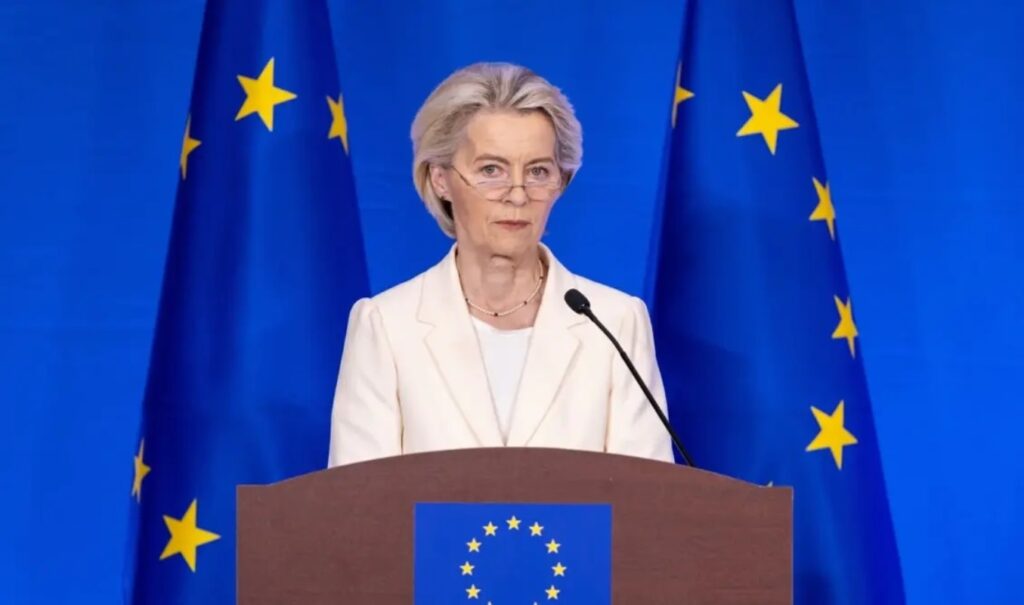Ursula von der Leyen will face her second no-confidence motion in less than three months next week. Despite mounting criticism, centrist MEPs appear to prefer stability over her removal.
Although several MEPs — even from the center-right European People’s Party (EPP), to which von der Leyen belongs — are becoming increasingly critical, they are more likely to use Monday’s plenary debate to voice complaints rather than align with the far-right and far-left seeking her removal in Thursday’s vote.
Criticism against Ursula von der Leyen
“There are many reasons to criticize Ursula von der Leyen,” Erik Marquardt, leader of the German Greens in the European Parliament, told Politico. “But we don’t believe a successor would necessarily be better than the current Commission President.”
This represents an unprecedented situation for EU leadership to face two no-confidence motions in such a short period. The previous one occurred in July and highlighted the growing influence of political extremes and concerns about the Commission’s direction under von der Leyen.
European Parliament trends and von der Leyen’s survival chances
On October 9, two separate no-confidence votes will be held: one from the far-right Patriots for Europe group and another from The Left group.
The European Parliament has 719 MEPs and removing von der Leyen requires a two-thirds majority of those present. The Patriots, The Left, and a second far-right group (ESN) hold a combined 158 seats — far fewer than required without support from the center.
Despite centrist MEPs becoming more critical, this trend doesn’t appear sufficient for her downfall. The two groups filing the motions accuse the President of weakening the EU, lacking transparency, poor judgment on trade agreements, her stance on Gaza, abandoning farmers, and undermining climate rules.
Even the Socialists, Renew Liberals, Greens, and EPP — who supported her election — now express dissatisfaction with various decisions, such as the surprise announcement to cut ties with Israel and sanction proposals.
Some EPP officials characteristically noted:
“Sometimes it’s hard to ‘swallow’ her actions.” Another MEP noted she faces “growing opposition” within the party’s national delegations.
The previous no-confidence motion failed to gather a majority: of 719 MEPs, only 553 voted, with 175 against von der Leyen. This time, more MEPs appear willing to support the motion from The Left and Patriots.
In the worst-case scenario for the Commission President, even with reinforcement of the “anti-Leyen” front from Socialists, Renew, and Greens, she would gather at most 305 votes against her — far fewer than the 480 required for her removal, assuming all MEPs vote.




